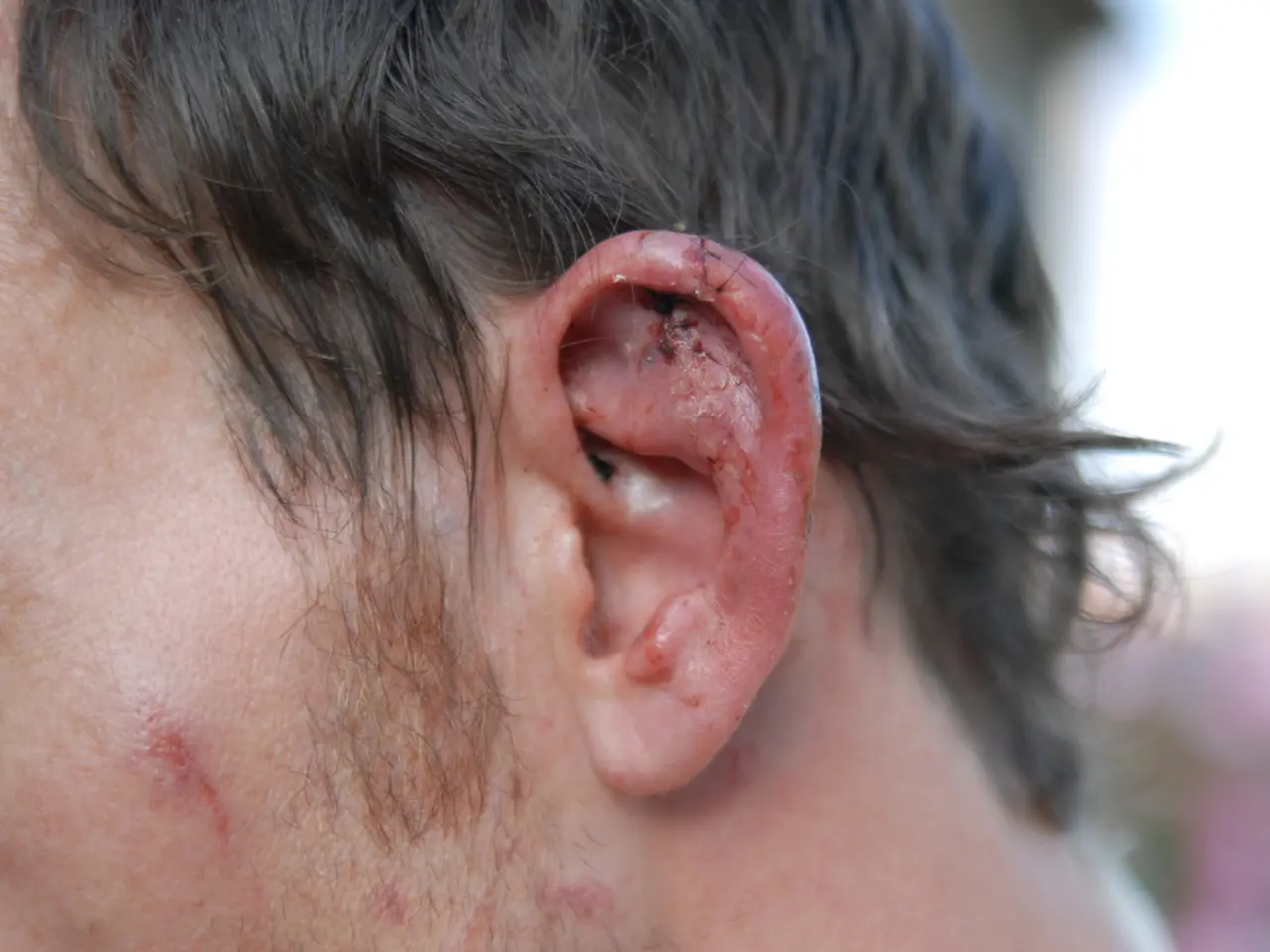night sweats potentially indicating signs of leukemia
Leukemia, a type of cancer that affects the blood cells, can present with various symptoms, including night sweats. This article aims to educate readers about the early signs and symptoms of different types of leukemia, focusing on night sweats and how they differ from normal night sweats.
Early Signs and Symptoms by Leukemia Type
Leukemia can be acute or chronic, and each type has its unique set of early symptoms. Here's a breakdown:
- Acute Lymphocytic Leukemia (ALL): Fatigue, weakness, fever, bone/joint pain, unexplained bruising, weight loss, and night sweats, often persistent and accompanied by fever.
- Acute Myeloid Leukemia (AML): Easy bruising/bleeding, fatigue, infections, fever, skin infections, night sweats with fever and possible weight loss.
- Chronic Lymphocytic Leukemia (CLL): Swollen lymph nodes (especially neck), fatigue, frequent infections, night sweats, which may occur nightly or intermittently.
- Chronic Myeloid Leukemia (CML): Fatigue, weight loss, night sweats, abdominal discomfort (from spleen enlargement), and night sweats common, can be intense and frequent.
How Leukemia-Related Night Sweats Differ from Normal Night Sweats
Leukemia night sweats are often severe and recurrent, causing clothes and bedding to be drenched multiple times per night or on consecutive nights over weeks or months. In contrast, normal night sweats are usually caused by environmental factors, hormonal changes, or infections and tend to be less intense and less persistent.
Leukemia-related night sweats often occur without obvious triggers and do not resolve with usual measures like changing room temperature or bedding. They usually accompany other systemic symptoms like unexplained weight loss, fevers, and fatigue, and are related to the body’s immune response to abnormal blood cells and possibly cytokine release.
Additional Early Leukemia Signs to Consider
- Unexplained fatigue and weakness from anemia due to reduced healthy red blood cells.
- Frequent infections or fevers because of impaired white blood cell function.
- Unexplained bruising or bleeding due to low platelet counts.
- Swollen lymph nodes, especially in CLL and ALL, often noticeable in the neck or armpits.
- Weight loss and loss of appetite are common as the disease progresses.
- Bone or joint pain, especially in acute leukemias due to marrow expansion.
Recognizing these symptoms early is crucial because many mimic other common illnesses. Persistent night sweats combined with other systemic signs warrant medical evaluation for leukemia among other serious conditions.
Conclusion
While night sweats alone are not usually due to a serious underlying disorder, frequent and excessive night sweating accompanied by other symptoms should prompt an individual to see their doctor immediately. Early diagnosis and treatment can significantly improve the outcome for a person with leukemia.
For those experiencing night sweats due to leukemia, managing symptoms can involve improving air circulation, lowering the air conditioner's thermostat, avoiding foods and drinks that may induce sweating, avoiding exercising close to bedtime, wearing loose, breathable clothing, removing excessive bedsheet layers, trying to maintain a healthy weight, practicing breathing exercises and other stress relaxation techniques, using bedsheets and linens with moisture-wicking fabrics, keeping ice water by the bed, preparing ice compresses or ice packs, taking a cool shower at night before going to bed, and taking steps to help with temperature regulation and fluid replacement.
[1] Mayo Clinic. (2020). Leukemia. [online] Available at: https://www.mayoclinic.org/diseases-conditions/leukemia/symptoms-causes/syc-20369092
[2] American Cancer Society. (2020). Leukemia. [online] Available at: https://www.cancer.org/cancer/leukemia.html
[3] National Cancer Institute. (2020). Leukemia. [online] Available at: https://www.cancer.gov/types/leukemia
[4] Leukemia & Lymphoma Society. (2020). Leukemia. [online] Available at: https://www.lls.org/leukemia
[5] Cancer Research UK. (2020). Leukaemia. [online] Available at: https://www.cancerresearchuk.org/about-cancer/types/leukaemia
- Acute Lymphocytic Leukemia (ALL) symptoms can also include obesity due to hormonal disruptions caused by the disease.
- Chronic health-and-wellness issues, such as Alzheimer's disease and diabetes, may share some symptoms with leukemia, including depression and changes in sleep patterns.
- Mental-health conditions, like anxiety and stress, can exacerbate symptoms of chronic diseases, including obesity, and may contribute to restless sleep.
- Fitness-and-exercise, such as regular physical activity and a healthy diet, can help manage chronic diseases like obesity, Alzheimer's, and depression, and aid in maintaining overall health and wellness.
- Predictive science, including genetics and lifestyle factors, plays a role in determining a person's risk of developing cancer, such as leukemia, and other chronic diseases.
- Sleep disturbances, like insomnia, are common in individuals with chronic diseases like cancer, obesity, Alzheimer's, and mental-health conditions, and may exacerbate symptoms.
- Managing chronic diseases, like cancer and obesity, effectively requires collaborative care between medical professionals, patients, and caregivers, with a focus on holistic health and addressing all physical and mental aspects of the condition.




